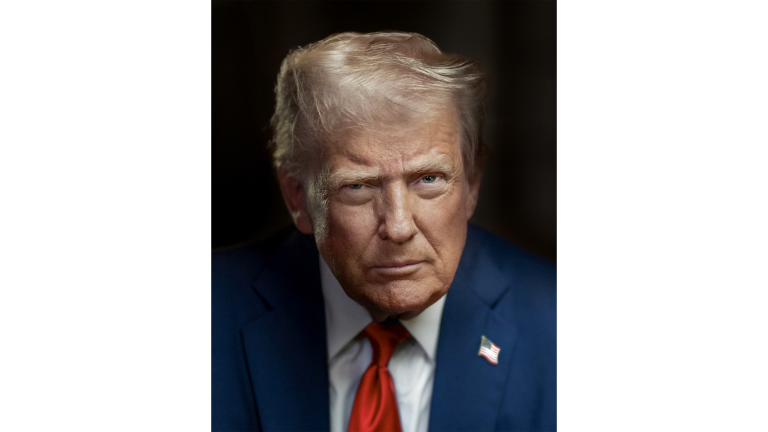
Moscow/Washington: Russia today withdrew from the Treaty on Conventional Armed Forces in Europe (CFE). Reacting to the decision, the White House said the combination of Russia’s withdrawal from the CFE Treaty and its continuing full-scale war of aggression against Ukraine – another CFE State Party – “has fundamentally altered circumstances that were essential to the CFE States Parties’ consent to be bound by the treaty, and radically transformed the obligations under the treaty”.
The United States claimed Russia’s withdrawal from the CFE Treaty demonstrated Moscow’s continued disregard for arms control, and US National Security Advisor Jake Sullivan said that Washington and its NATO Allies “remain committed” to effective conventional arms control as a critical element of Euro-Atlantic security. “We will continue to pursue measures that aim to bolster stability and security in Europe by reducing risk, preventing misperceptions, avoiding conflicts, and building trust,” Sullivan said.
In light of this “fundamental change of circumstances”, the United States said it will suspend the operation of all CFE Treaty obligations between itself and every other State Party, effective December 7, consistent with its rights under international law.
It may be mentioned that denouncing the treaty, Russia on June 9, notified the states-parties of its decision to withdraw from the CFE within 150 days of the notice, or at midnight on November 7, 2023.
Due to Russia’s withdrawal from the CFE, two other associated legally binding documents will cease to be in force for the Russian Federation. The documents include the Budapest Agreement on Maximum Levels of Holdings of Conventional Arms and Equipment for the Members of the Warsaw Treaty of November 3, 1990, and the Flank Document Agreement of May 31, 1996. The former was designed to determine the levels of conventional arms for each member of the then-effective Warsaw Pact and level change mechanisms while the latter prescribed a temporary solution to the issue of flank restrictions that resulted from the dissolution of the Union of Soviet Socialist Republics (USSR).
Russia considered it necessary to completely withdraw from the CFE treaty due to the “exceptional circumstances associated with the treaty that jeopardise Russia’s supreme interests”.
Specifically, according to Russia, these circumstances included:
– New countries joining NATO without joining the CFE or transferring from the eastern group of the CFE signatories to the western group, and the deployment of older NATO members’ conventional arms on the territories of the new members, resulting in multiple bypassing or exceeding the group ceilings under the CFE.
– Non-compliance by the CFE states-parties that are also members of NATO with the political commitments to accelerating ratification of the Agreement on Adaptation of the Treaty on Conventional Armed Forces in Europe, undertaken in Istanbul on November 19, 1999, and to lowering the levels envisaged by the agreement.
– Other actions by certain CFE states-parties that run counter to the goals of the treaty, in particular, actions concerning the transfer of conventional arms.
It may be mentioned that the treaty was signed in 1990 between the members of the Warsaw Treaty and the NATO countries, to establish a balance of forces between the members of these military and political unions at lowered levels, and to restrict the deployment of their conventional weapons along the contact line. However, subsequent events – the dissolution of the Warsaw Treaty and the Soviet Union, new conflicts on the Soviet territory and the consequential expansion of NATO to the east – prompted the adaptation of the CFE to the new circumstances.
Russia claimed that at its insistence, the Agreement on Adaptation of the Treaty on Conventional Armed Forces in Europe was signed on November 19, 1999, in Istanbul, “to never commence due to the destructive position of the Western countries that declined its ratification and continued bypassing the restrictions under the initial CFE by expanding the alliance”.
In these conditions, Russia suspended the implementation of its CFE obligations in 2007 but left the door open for reviving conventional arms control in Europe.
Reacting to Russia’s decision, US National Security Advisor Jake Sullivan said today in Washington that the US and its NATO Allies have suspended their obligations under the CFE Treaty.“As reflected in the statement issued at NATO Headquarters today, our Allies unanimously share our view that a situation where the United States and our NATO Allies continue to be militarily constrained by the CFE Treaty, while Russia – whose armed forces are the largest in Europe, and who continues to actively wage a war of aggression against Ukraine using the very forces the treaty aims to constrain – is not, would be unacceptable,” Sullivan said. According to him the suspension of CFE obligations will strengthen the Alliance’s deterrence and defence capacity by removing restrictions that impact planning, deployments, and exercises – restrictions that no longer bind Russia after Moscow’s withdrawal.
– global bihari bureau





